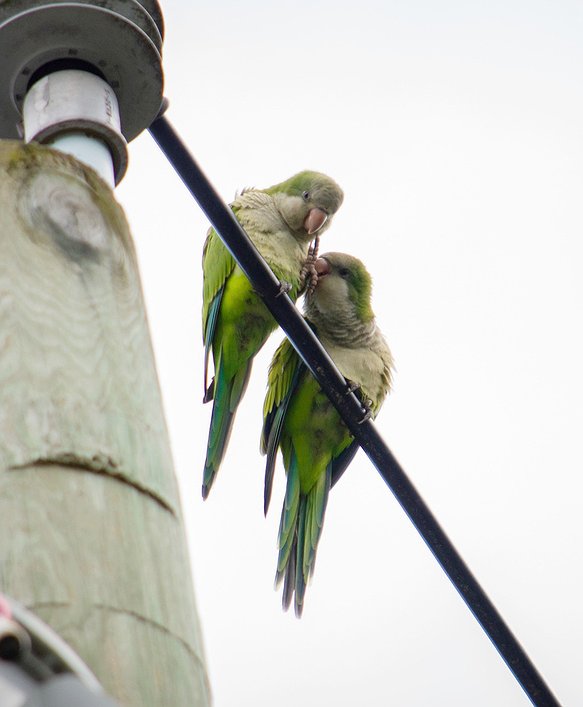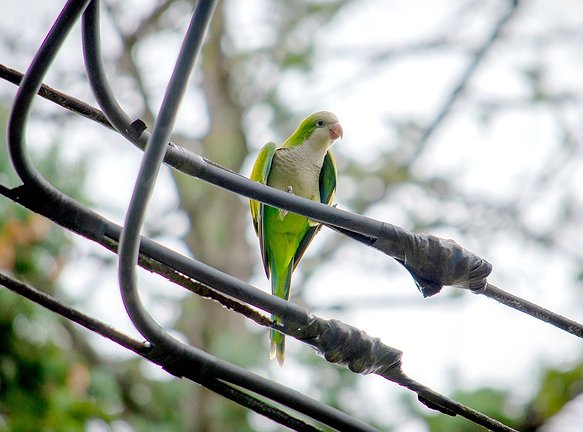Photographer captures monk parakeets in P.C.
September 4, 2024 at 11:56 p.m.
Embellished with vivid shades of lime green, monk parakeets, in flourishing summer months, can easily go unseen.
But when spotted, it’s hard not to appreciate their presence.
“If you travel to South America, you see all these exotic birds, and it’s local to them. But usually for us, it’s pigeons and occasionally bluejays, nothing like the parakeets,” said Louis Perea. “So, when you see them, they’re really kind of amazing.”
A Port Chester-based photographer, Perea captured several pictures of monk parakeets living their avian lives in town in early-August. When he described the sight as reminiscent of the nature of a different country, he was not wrong in his reflections—the small, emerald birds with blue tipped wings are not native to New York.
But they’ve been living here for a long time.
Originating from South America, monk parakeets have been reported in the wild of U.S. cities since the 1960s, according to the National Audubon Society. For a few decades, they were shipped to pet shops in the States as popular caged birds, and while such imports are now illegal, they’re still bred in captivity.
The often-told urban legend suggests their introduction to the wild in the U.S. originated when a flock of birds escaped from a faulty crate at John F. Kennedy International Airport. Experts suggest that while that may be true, their presence is also likely linked to pet ownership—folks, either intentionally or not, setting their parakeets free.
According to the NYC Bird Alliance, because monk parakeets are native to subtropical areas of South America, they were able to adapt well to the Northeast climate. They’ve largely stayed in urban areas, having little damaging impact on agriculture (though nests can be hazardous to electric wires).
But since establishing residency, they’ve been spotted more and more in areas surrounding the city; including Port Chester.
Perea has lived in Port Chester his whole life, graduating from the high school in 2009. He took pictures of the parakeets on Glen Avenue, near the Haseco Avenue intersection, where he rents a unit.
“We get a lot of different visitors here—birds, squirrels and cats. But these birds, I just saw them this summer,” he said. The property owner, Rose Lividini, does most of the interactions with the animals. But when she saw the parakeets, “she knew I do photography and asked if I’d grab a few shots. So, I grabbed my camera. I just wanted her to have a few pictures, because she wanted to share them. We’ve never seen that type of breed before.”
At first, seeing only a few parakeets on the bird feeder, they thought someone had lost their pets. But at one point, Perea said Lividini saw dozens gathered around the utility poles nearby, quickly disproving that theory.
Perea is a photographer by hobby. His work can be seen on Instagram under the tags @louper_ and @louperphotos.
Though he’s dabbled in the art as a profession, he doesn’t do it so much anymore. “I’ve done some wedding proposals and engagements, but I haven’t really been trying to make it into a work thing,” he said. “I wasn’t enjoying it as much when I was doing that.”
To him, photography is for pleasure—a way to escape from the screens to seek beauty in the world. He particularly likes taking pictures of landscapes and nature.






Comments:
You must login to comment.